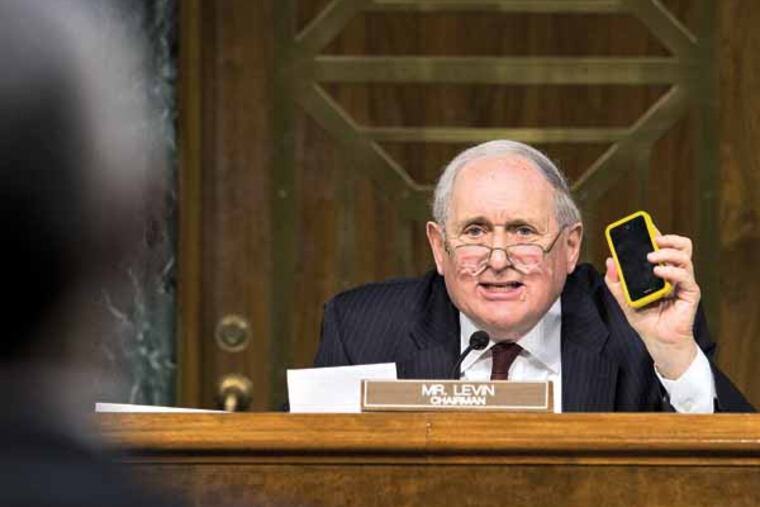Apple CEO defends tax stance
"We pay all ... we owe - every single dollar," he told senators questioning overseas shelters.

WASHINGTON - Apple Inc. chief executive Tim Cook strongly defended the company's tax practices Tuesday at a Senate hearing highlighting the technology giant's use of Irish subsidiaries to shelter billions of dollars in income from U.S. taxes.
"We pay all the taxes we owe - every single dollar," Cook told the Senate's Permanent Subcommittee on Investigations.
"We not only comply with the laws, but we comply with the spirit of the laws," he said. "We don't depend on tax gimmicks."
Cook said the tax code "has not kept up with the digital age" and restricts the free movement of capital in comparison with the rules of other countries. He called for a "dramatic simplification of the corporate tax code," including lower tax rates and a "reasonable tax on foreign earnings."
He said Apple was "deeply committed to our country's welfare."
"We are proud to be an American company, and we are equally proud of our contributions to the U.S. economy," Cook said.
The panel's chairman, Sen. Carl Levin (D., Mich.), called Apple "an American success story" with a "well-earned reputation for creativity," but he said that did not excuse the company's tactics, which the subcommittee's investigation found helped Apple avoid paying at least $9 billion in U.S. taxes in 2012.
"Apple executives want the public to focus on the U.S. taxes the company has paid, but the real issue is the billions in taxes it has not paid, thanks to offshore tax strategies whose purpose is tax avoidance, pure and simple," Levin said.
Such tax avoidance by U.S. multinational companies increases the federal budget deficit, forcing average Americans to make up the difference with a higher tax burden, he said.
Levin said Apple "is exploiting an absurdity" that allows three of its subsidiaries in Ireland to claim they have no responsibility to pay taxes to any country.
One of the companies, Apple Operations International, which has no employees but reported $30 billion in income in four years, has not filed an income-tax return in any country for the last five years, the subcommittee investigation found.
A second company, Apple Sales International, holds the economic rights to Apple's intellectual property in Europe, Asia, and Africa. The subsidiary had $74 billion in sales income from 2009-12 but paid less than 1 percent in taxes to Ireland.